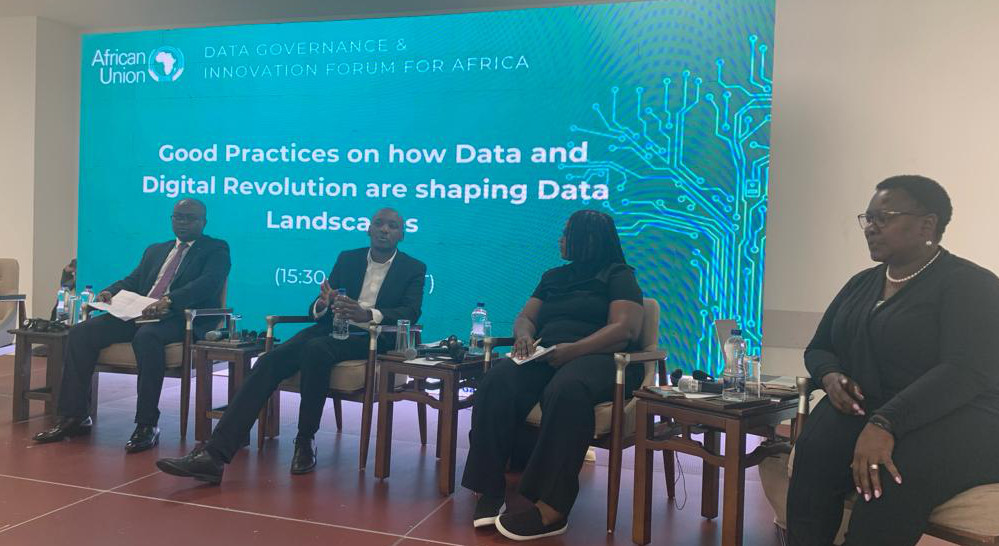In a dynamic discussion at the African Union Special Technical Committee (STC) on ICT in Addis Ababa, Ethiopia, KICTANet along with partners UNESCO and GIZ, delved into the challenges and opportunities facing African media in the wake of COVID-19 and the digital revolution. This blog encapsulates KICTANet’s contributions to the discourse and outlines recommendations to the African Union, addressing the intersection of technological advancements, media viability, and ethical considerations.
The Changing Face of Media Consumption in 2023.
Consumption habits have evolved, with the internet, phones, and TV dominating the content landscape. KICTANet emphasizes the need for African media to adapt by embracing digital platforms, recognizing that Over-the-Top (OTT) services are reshaping the industry.
- Embrace Digital Platforms: News organizations must establish robust online presences through social media, mobile apps, and websites to engage wider audiences in real-time. The dominance of OTT platforms signals a fundamental shift and old media must adapt to the new digital reality.
- Invest in Data Analytics: Harnessing the power of data analytics is crucial for media organizations. Insights into audience behavior and preferences allow tailoring content and advertising to specific audiences, enhancing engagement and relevance.
- Collaborate with the Tech community: Partnerships with Tech Community can drive innovation. Examples include AI-powered content recommendation engines and blockchain-based content distribution platforms, and hackathons, enabling media organizations to expand their reach and offerings. This is based on the philosophy that “the next big this is still out there, yet to be discovered”.
- Develop Multimedia Content: Diversifying content formats, including podcasts, videos, and infographics, is essential to reach a broad audience. Understanding the youth’s preferences for mobile-centric strategies is key in shaping content strategies.
Recommendations to the African Union
KICTANet puts forward practical recommendations to the African Union to strengthen partnerships between media and tech companies:
- Promote Affordable Broadband Internet Connectivity: Initiatives to make broadband internet more accessible are crucial for fostering a conducive digital environment. Lowering costs and subsidizing hardware, especially for marginalized communities, will ensure inclusivity.
- Support Digital Skills Training: Collaboration with educational institutions and private organizations should be prioritized to enhance digital skills among media professionals. Training in digital journalism, video production, and social media management is essential for staying relevant.
- Incentives for Innovation: Policies and incentives, such as tax breaks, grants, or funding programs, can encourage innovation within the media sector. This support will enable media organizations to adopt and implement new technologies effectively.
- Clear Regulatory Framework: Developing a transparent and conducive regulatory framework is vital. Regulations should address the challenges and opportunities presented by the digital revolution, ensuring fair competition, protecting intellectual property, and upholding ethical standards.
- Facilitate Industry Collaboration: Organizing forums, conferences, and networking events that bring together media professionals, tech companies, and policymakers will foster collaboration, idea exchange, and partnerships, driving the industry forward.
Ethical Considerations in Digital Spaces
Recognizing the ethical dimensions of digital spaces, KICTANet emphasizes the importance of balancing media viability with responsible practices:
- Privacy, Accuracy, and Fair Reporting: Upholding journalistic integrity is paramount. Safeguarding user privacy, ensuring accuracy, and presenting news without bias are ethical imperatives.
- Transparency in Algorithms: The algorithms that power digital platforms should be transparent and accountable to maintain user trust and ensure fairness. This can be achieved by having an open auditable code transparent code and proper regulatory frameworks for making platforms accountable.
- Combatting Misinformation: Robust processes must be in place to identify and mitigate the spread of misinformation, promoting media literacy to discern credible sources.
- Diversity and Inclusion: A greater focus on diversity and inclusion is essential to ensure that digital spaces are accessible and welcoming to all, reflecting the richness of society.
Addressing Online Harassment and Hate Speech
KICTANet has developed several publications (Unmasking The Trolls: Research on Online Gender-Based Violence in Kenya) and held extensive multistakeholder forums on the issues of misinformation, hate speech, and online gender-based violence. The prevalence of online harassment and hate speech in digital spaces requires concerted efforts.
- Curbing Online Harassment: Media organizations and tech companies must take proactive measures to curb online harassment, fostering a culture of respect and inclusivity.
- Tackling Hate Speech: Stricter policies against hate speech, along with advanced content moderation tools, are essential to maintaining safe and respectful digital spaces.
As the African media landscape undergoes unprecedented transformations, the insights and recommendations from KICTANet serve as a roadmap for navigating the digital frontier. Balancing technological advancements with ethical considerations and fostering collaborations will not only ensure media viability but also contribute to the creation of a responsible, inclusive, and sustainable digital future for Africa.
KICTANet was represented by Mwendwa Kivuva, a Board Member of the Trust.
X: @mwendwakivuva.
![]()




